News story
Leaders to the Future discuss and present their recommendations to support the development of the Secretary-General’s New Agenda for Peace
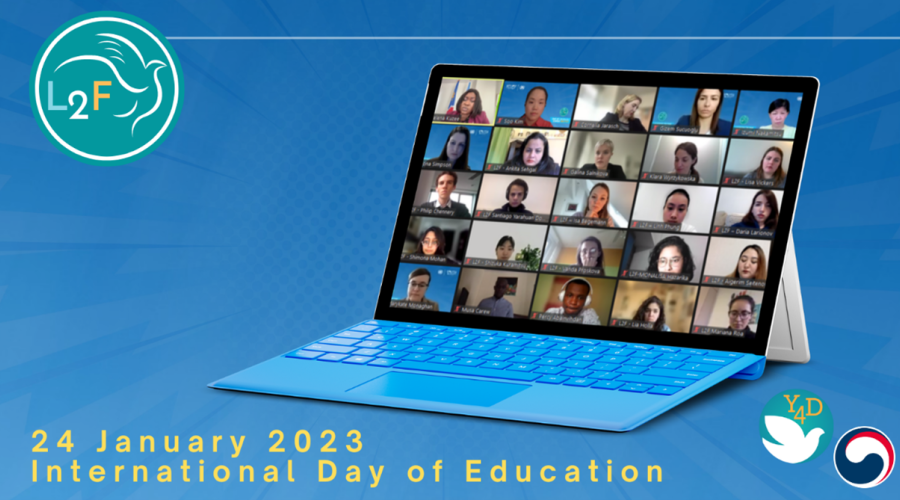
On 24 January, the International Day of Education, 46 young participants from around the world attended an interactive webinar to share and present their ideas to support the development of the Secretary-General's New Agenda for Peace, organized by the United Nations Office for Disarmament Affairs (UNODA). During the session, the participants discussed, developed, and presented their bold and fresh thoughts and ideas on how they see the future of disarmament.
The session marked the first in the recently launched “Leaders to the Future” Series, which aims to engage the alumni members of the #Youth4Disarmament initiative on the linkages between disarmament, non-proliferation, and arms control (D.N.A.) with numerous topics related to international peace and security.
With generous financial support from the Ministry of Foreign Affairs of the Republic of Korea, the group of #Leaders2Future will learn from experts in a series of educational workshops and networking sessions. The opening workshop on the Secretary-General’s New Agenda for Peace aimed to provide an outline of its emerging elements, with a particular focus on its disarmament dimensions, as well as expected outcomes.
In her opening remarks, the High Representative for Disarmament Affairs, Ms. Izumi Nakamitsu, noted that the recommendations put forward by the youth leaders would be essential in developing an agenda that addresses today’s challenges and strives to build and sustain peace for all. “As future leaders, we count on your insight and ideas once again, to help strengthen international peace and security for current and future generations,” she said.
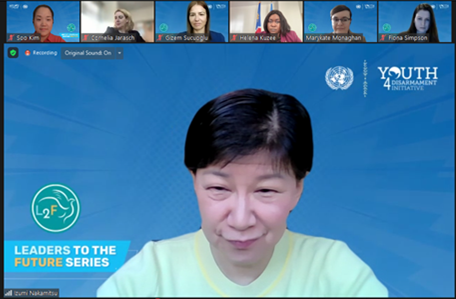
Participants heard an informative overview and roadmap for the upcoming Summit of the Future by Mrs. Helena Kuzee, the Deputy Permanent Representative of the Permanent Mission of Namibia, and Ms. Cornelia Jarasch, Counsellor for the Permanent Mission of Germany, in view of their respective Permanent Representatives‘ roles, in their personal capacities, as the co-facilitators for the preparatory process of the Summit.

Ms. Klara Wyrzykowska, Programme Management Officer with the Executive Office of the Secretary-General, and Ms. Gizem Sucuoglu, Senior Political Affairs Officer with UNODA, briefed the participants on the different components of the New Agenda for Peace and its connection with Our Common Agenda. Ms. Fiona Simpson, Political Affairs Officer with UNODA, provided information on the Office’s role in supporting the development of a new vision for disarmament with insight on the lessons learnt from previous processes undertaken by the United Nations to advance disarmament, non-proliferation, and arms control objectives.
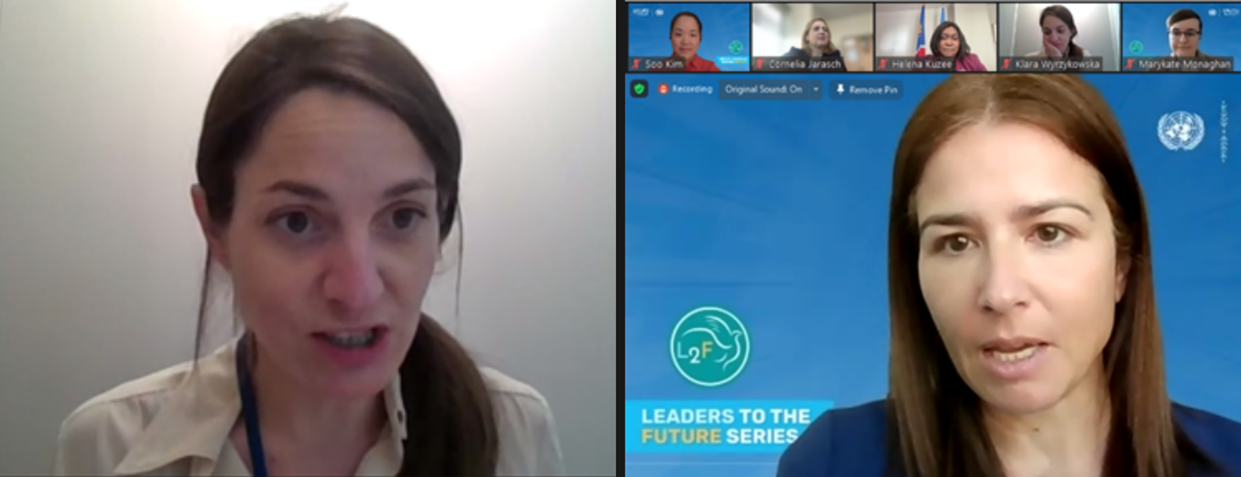
Participants then took part in an interactive quiz to share their thoughts on the role of disarmament, their feelings for the future, what they saw as the biggest dangers facing our world for the next 25 years, what decision-makers should do today to mitigate such future challenges, and what actions they would like to see taken in the disarmament field in the future.
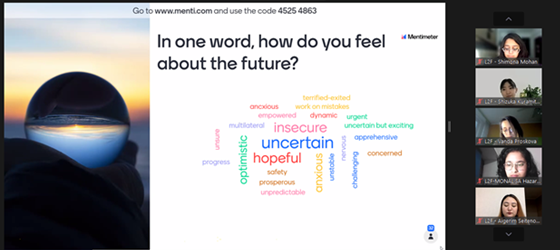
The cohort continued their discussions in small, breakout groups to explore the central topics of 1) Geopolitical Risks, 2) Development and Human Rights, and 3) Emerging Technologies. Following their deliberations, rapporteurs from each group presented their findings to the wider plenary. The recommendations will also be shared with UNODA in written form after the workshop. Each group commented on the urgency of the moment and noted the need for effective and inclusive approaches to address the multiple challenges facing our world, with emphasis on initiatives to facilitate mutual trust, dialogue, and awareness amongst multiple stakeholders.
Ms. Radha Day, Chief of the Regional Disarmament, Information and Outreach Branch of UNODA, commended the young leaders on their constructive and thought-provoking deliberations and recommendations in her closing remarks. “By demystifying disarmament, breaking down the silos between disarmament and development, and visualizing connections with topics central to the New Agenda for Peace, your efforts will be key in developing effective and comprehensive solutions to today’s challenges,” she stressed.
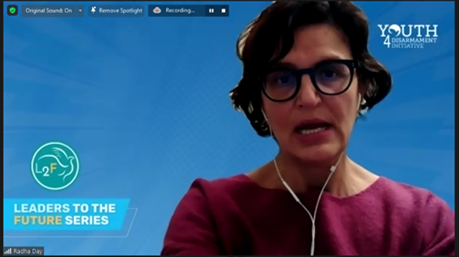
The #Leaders2Future will gather again for their next session in February to discuss the linkages between D.N.A. and Gender Parity. Be sure to follow the journeys of the #Leaders2Future as they explore the cross-cutting connections of D.N.A, as well as present their recommendations to establish a safer, more peaceful and sustainable world for all.